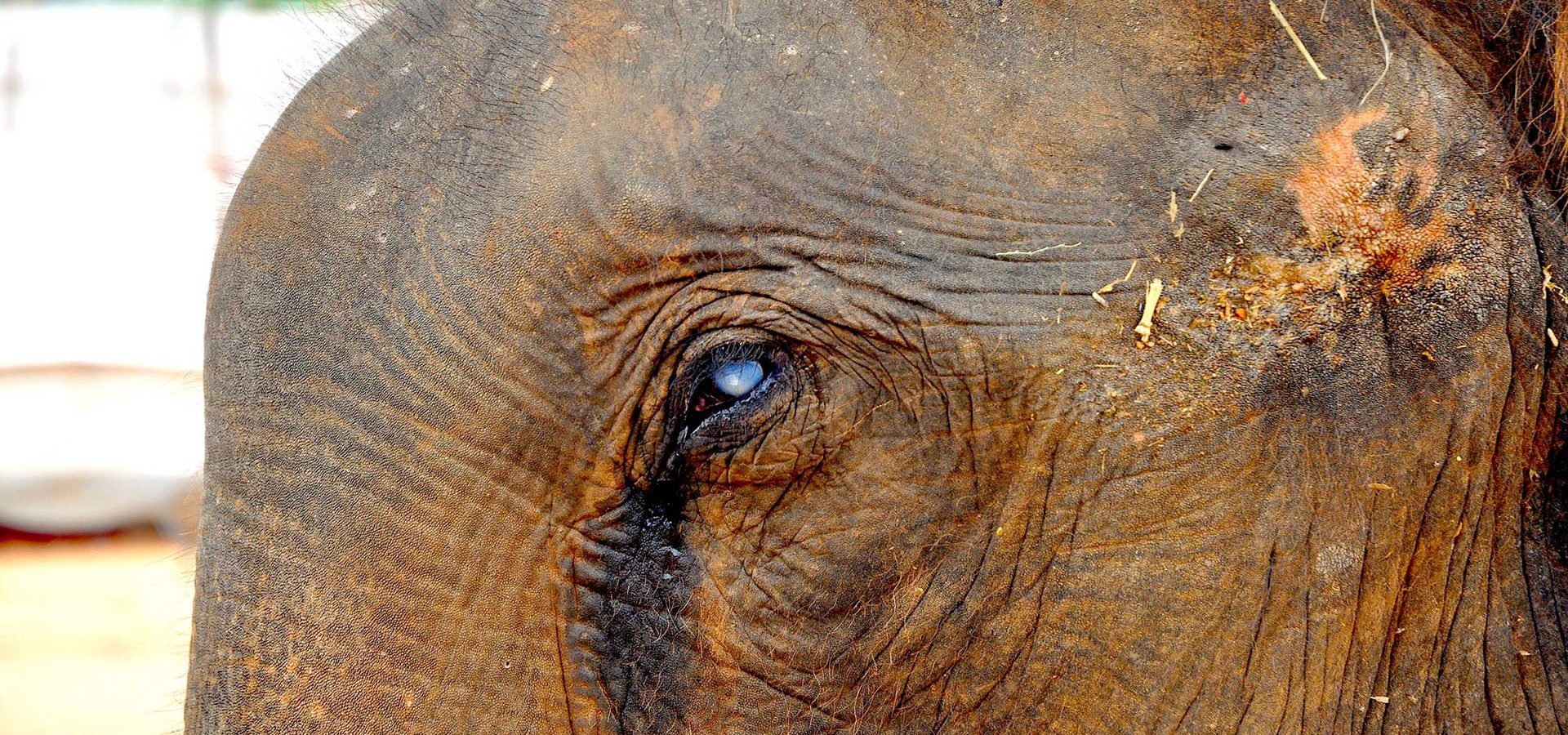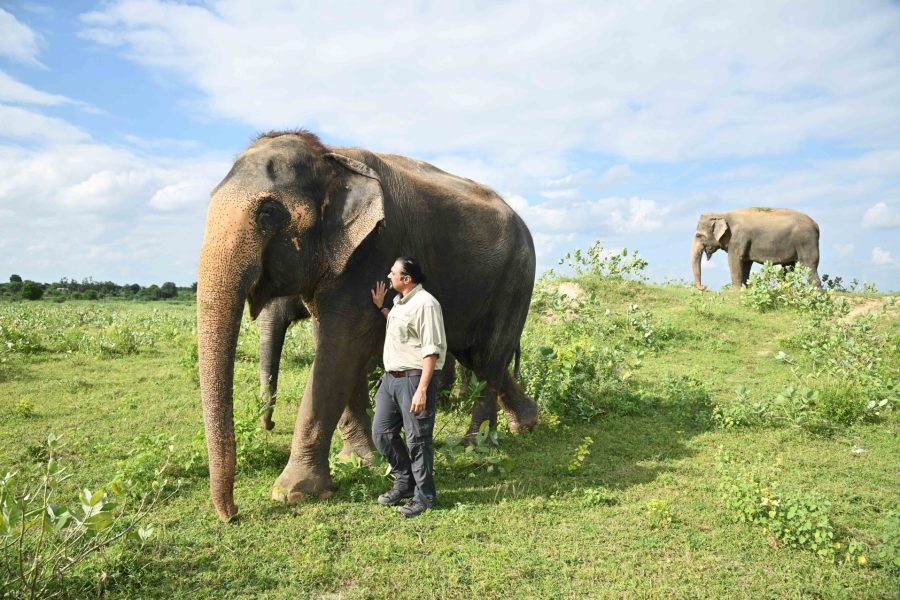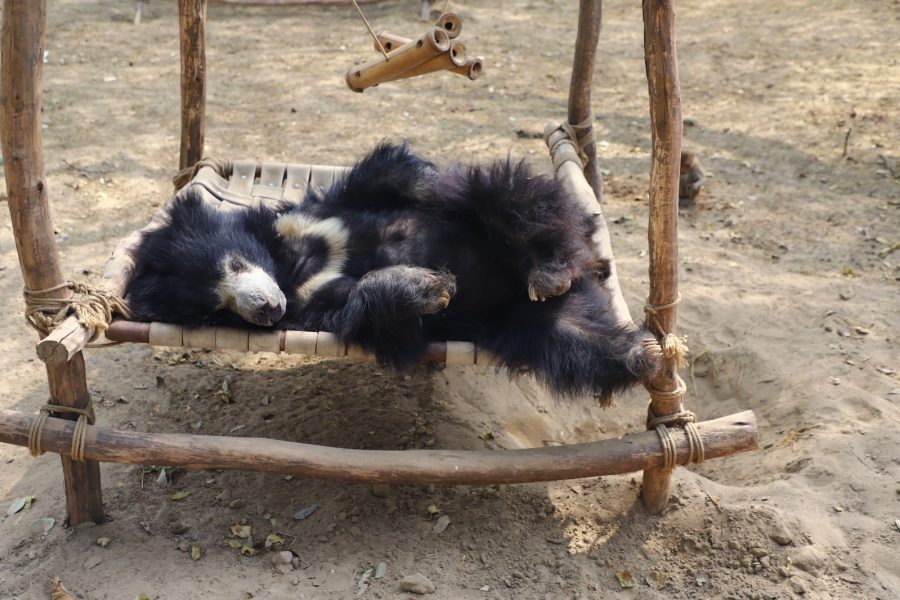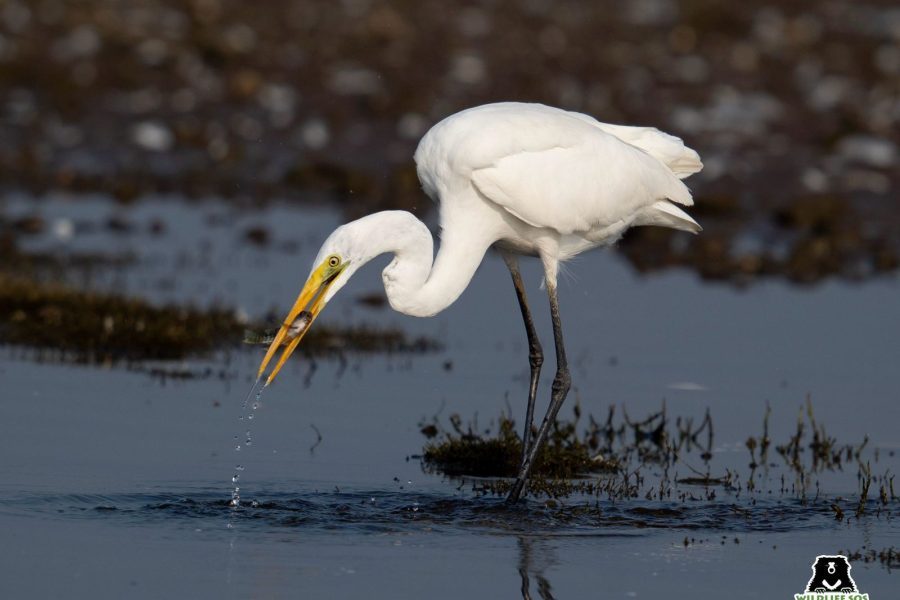The word Phajaan means breaking of the spirit. It is a brutal process wherein a captive elephant is isolated and beaten -using pain and fear as the driving force until every trace of its wild spirit leaves its body, and it begins obeying its captor. Phajaan is sadly the only way an animal as large as an elephant can be tamed and is the brutal initiation of any captive elephant into the world of humans.
One of the thousand such elephants with a broken spirit, Bijli, stood defeated at the Sonepur Cattle and elephant market-cum-fair – Asia’s biggest cattle fair, attracting visitors from all over the continent as they indulge in the trade of various species, including buying and selling of elephants. As easily as a piece of furniture is sold, Bijli was sold to a man who took her to the city of Agra, where Bijli was used as a begging elephant when she wasn’t rented out to weddings, processions, and other revenue-generating activities. She spent nearly 20 years of her life walking on hot tarmac roads and sustaining herself on a severely compromised diet of minimal dry fodder and water. To add to her misery, Bijli became a victim of a tragic collision with a truck when she was being walked at night to evade the authorities. The collision broke her hind leg and left her with a permanent deformity and limp.
Wildlife SOS heard about Bijli’s plight through a network of undercover informers. The fear of being sold again due to her injury loomed over Bijli. The mere thought of her being sold off to another captor, who would restart the process of Phajaan to tame her, sent shivers down our spine. Determined to usher in a new dawn of freedom in her life and provide her with much-needed medical care, Wildlife SOS informed the enforcement authorities, and the Forest Department and Police took action to confiscate Bijli as her captors had her in illegal custody. The forest department then handed her over for long-term medical treatment and rehabilitation to the Elephant Conservation and Care Center in Mathura.
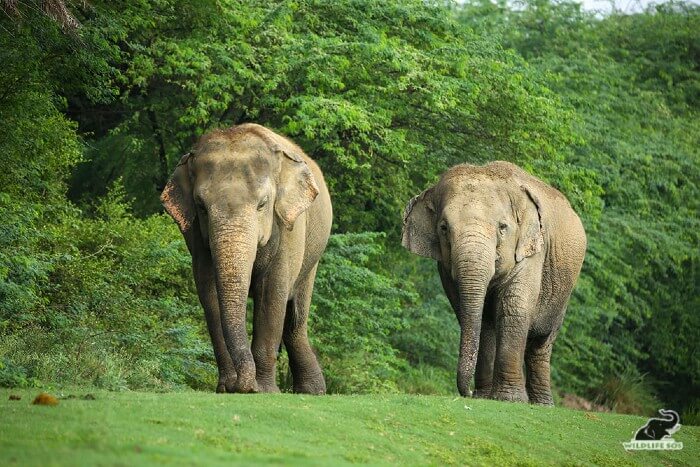
Twelve years have passed since Bijli bid farewell to her life of torment and began a new chapter full of dignity and freedom. Today, Bijli leads a retired life and receives the medical attention that she requires, and this was possible only because of the legal protection offered to Asian Elephants under the Wildlife (Protection) Act of 1972. With one of the most rigid frameworks of elephant conservation globally, this special act under Indian law covers several aspects of elephant protection, including the prohibition of hunting, banning the sale of captive elephants for commercial purposes, and strict regulation of transportation of captive elephants across state borders.
In its 50th year, the Wildlife Protection Act of 1972 (WLPA) is proposed to be amended by the Central Government, a much-needed and well-intentioned move to protect the diverse wildlife of India, specifically Asian elephants like Bijli, who are already fighting an uphill battle for survival. To ensure that the amendments to the WLPA truly aid the fight to save India’s elephants, there is an urgent need to scrutinize the WLP Act further, ensuring no loophole exists that might endanger our beloved elephants; After all, India is the last stronghold for this species which is also our National Heritage Animal!
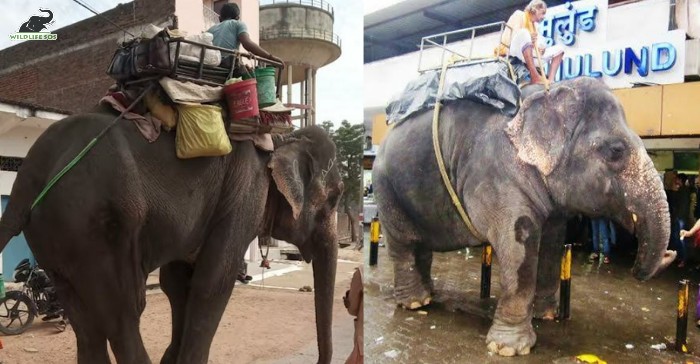
In its current form, the WLP Act allows people to transfer live captive elephants conditional upon prior approval from the state’s Chief Wildlife Warden and bans commercial transactions. The new proposed amendment Bill now proposes the removal of elephants from these sections which would effectively lift the ban. The amendment also proposed the inclusion of a new subsection (4) in Section 43 that could potentially allow the sale and purchase of live captive elephants. The subsections read as follows:
“(4) This section (section 43) shall not apply to the transfer or transport of any live elephant by a person having a certificate of ownership, where such person has obtained prior permission from the State Government on fulfillment of such conditions as may be prescribed by the Central Government.”
Through the introduction of this newly proposed subsection, “live elephants” could be excluded from the protections granted to animals under Section 43, thereby it could be interpreted as permitting commercial trade and transfer across states. This bold amendment comes from the need to regulate the illegal sale of captive elephants that was already taking place, much like the story of Bijli.
To ensure that the amendment’s true intent to regulate and prevent illegal trade of elephants reaches its full potential, it would be prudent to ensure avoidance of any potential ambiguity that could risk accidentally fuelling an already burgeoning illegal elephant trafficking and poaching industry by encouraging the commercial trade of elephants. At its current stage and form, the amendment requires clarity and removal of any ambiguity that could be misinterpreted and twisted as a loophole by anti-social elements. Extreme caution must be exercised before the bill’s proposed amendments are considered and approved.
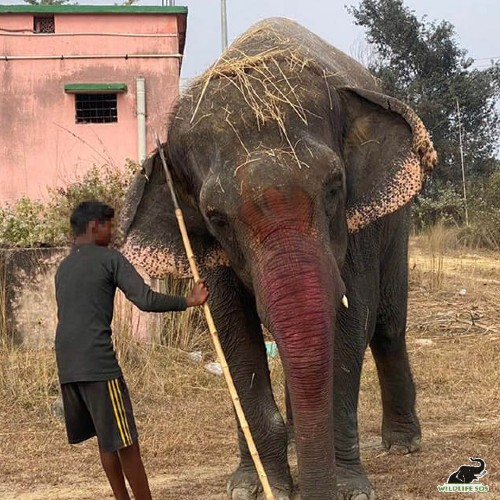
The proposed amendments could be viewed as requiring a lot of careful scrutiny with a toothcomb as any use of vague and undefined language in the amendment could potentially and accidentally create a caveat that many anti-social elements could misuse. The term “live elephants” presently lacks definition and could easily mean captive elephants or wild elephants that have been removed from their wild habitat with or without legal approvals. It further fails to clarify which state government must give prior permission to trade elephants – the originating state or state of transfer – leaving gaps and holes for poachers and illegal traffickers and traders to take advantage of. Presently multiple approvals are required from both the state of origin and the state which will receive the elephant which includes multiple checks and balances that are required for preventing illegal trafficking.
By 2019 India had already lost as many as 429 elephants to poaching. The amendment risks adding to this perturbing statistic with no checks and balances on elephants being sold and transferred across state borders. This also compromises the well-being and welfare of elephants while allowing their transfer. It is essential that the type of permissions required from the state government and the conditions of the central government are clarified in great detail accordingly while ensuring all ambiguity is removed completely leaving nothing to misinterpretation.
Not only does this amendment risk an increase in poaching and illegal trade, but it also exacerbates the misery of geriatric or blind, lame, physically disabled captive elephants. Most elephants in captivity have physical ailments such as spine injuries due to carrying heavy loads on their backs, torn footpads due to walking harsh unnatural surfaces, and degenerative arthritis due to being chained for endless hours. By removing the ban on the sale of elephants, such disabled elephants would continue to be stuck in this vicious cycle, being passed on from one trader to another.
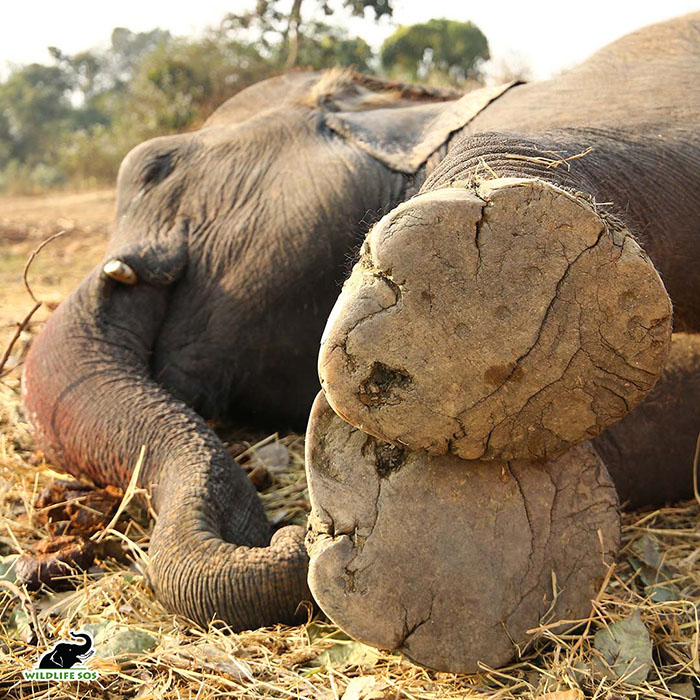
Rather than being caught in a vicious sale and trading cycle, the WLP Act must create safety provisions for such elephants to be retired and surrendered to the forest department camps or rescue and care centers for long-term treatment and care. Provisions for seizure should also be made for captive elephants that show signs of extreme abuse, neglect, and ill-treatment.
At its core, the proposed amendments radically contradict and go against the documented and written recommendations of the Elephant Task Force, constituted by the MoEF&CC, Government of India in 2010. The report recommended that acquisitions of elephants already in captivity or wild-caught should be gradually phased out. The task force also recommended amending the law to prohibit the sale, transfer, power of attorney, lease, gift, and donation of elephants. To allow this, establishing lifetime care centers that could care for elephants was recommended. Sadly, these recommendations are yet to be implemented.
When it comes to these majestic giants of the planet who are said to experience a myriad of emotions such as joy, love, hate, and even sadness, we must ensure that we are doing everything in our power to protect them. With a little more contemplation and careful scrutiny, the proposed amendment to the WLP Act 1972 can be modified to achieve its goal – to protect India’s wildlife.
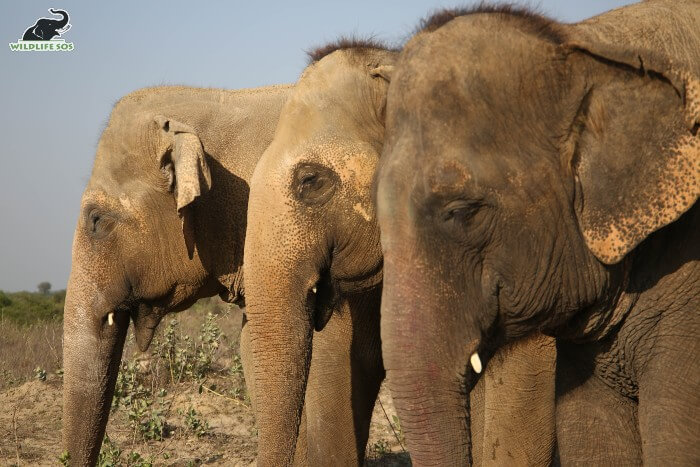
The Wildlife Protection Act of India has long stood as a worldwide example of honorable wildlife conservation. Amending the Wildlife Protection Act gives all of us a chance to make India a safe haven for our elephant population. It allows us to create a world where no more elephants like Bijli live with the sorrow of a shattered spirit and the agony of being sold from one captor to another.
We urge the Government of India to consider the critiques to the Wildlife (Protection) Act, 1972, and allow us to aid them in their endeavor to protect elephants. By standing up for earth’s giants, we can set an example for every elephant country to follow. Much like people, elephants in India deserve protection. It is prayed that the ban on commercial trading of elephants remains and is not lifted so elephants can continue to receive protection.

